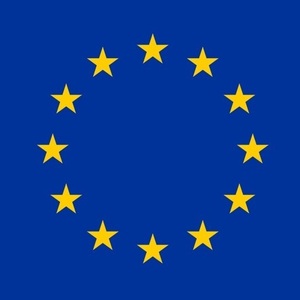European Commission funds BECCS, MSW-to-chemical projects




April 4, 2022
BY Erin Krueger
A Sweden-based bioenergy carbon capture and storage (BECSS) project and a Spain-based project that aims to convert municipal solid waste (MSW) into chemicals and biofuels will each receive a share of EUR 1.1 billion ($1.21 billion) in grants awarded by the European Commission on April 1.
The Commission on April 1 signed grant agreements with seven large-scale projects via the EU Innovation Fund, which is funded by revenues from the EU’s Emissions Trading System. The projects will deploy innovative low-carbon technologies at industrial scale, covering key sectors such as hydrogen, steel, chemicals, cement, solar energy, biofuels, and carbon capture and storage
The BECCS project, led by Stockholm Exergi, has been awarded EUR 180 million and will be located at an existing biomass-fired combined-heat-and-power (CHP) plant in Stockholm, Sweden. The project will feature the use of hot potassium carbonate (HPC) for carbon capture and storage (CCS). According to the European Commission, the HPC technology is well proven with multiple installations over the years. To date, however, it has not been paired with a biomass-fueled CHP plant on a commercial scale. Stockholm Exergi currently operates a smaller-scale research and development facility at the plant site with support from the Swedish Energy Agency. The BECSS project is currently scheduled to be operational in the third quarter of 2026 and has the potential to sequester approximately 7 million metric tons of carbon dioxide over the first decade of operations.
The MSW-to-chemicals and biofuels project, led by Ecoplanta Molecular Recycling Solutions S.L., was awarded EUR 106.38 million and will be located at a petrochemical complex in El Morell, near the port of Tarragona in Spain. The proposed plant will produce 237,000 metric tons per year of methanol via a gasification process, recovering 70 percent of the carbon present in the non-recyclable materials used as feedstock. The project is expected to be operational by the third quarter of 2026 and achieve 3.4 million metric tons of carbon dioxide emissions reductions over the first 10 years of operation.
Advertisement
Additional information on all seven projects selected for funding is available on the European Commission website.
Advertisement
Related Stories
The U.S. Department of Energy Bioenergy Technologies Office (BETO) announced up to $23 million in funding to support research and development (R&D) of domestic chemicals and fuels from biomass and waste resources.
The U.S. DOE has announced its intent to issue funding to support high-impact research and development (R&D) projects in two priority areas: sustainable propane and renewable chemicals and algal system cultivation and preprocessing.
Sens. Sherrod Brown, D-Ohio, and Pete Ricketts, R-Neb., in August introduced the Renewable Chemicals Act, a bill that aims to create a tax credit to support the production of biobased chemicals.
The Chemical Catalysis for Bioenergy Consortium, a consortium of the U.S. DOE’s Bioenergy Technologies Office, has launched an effort that aims to gather community input on the development of new biomass processing facilities.
USDA on March 8 celebrated the second annual National Biobased Products Day, a celebration to raise public awareness of biobased products, their benefits and their contributions to the U.S. economy and rural communities.
Upcoming Events










